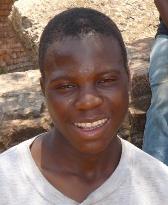Child Rights and Advocacy
 Chimwemwe has carried out advocacy work to build people’s understanding of the children’s needs and potential, and to increase the responsibility of the duty-bearers, and to prevent more children ending up on the streets. It provides protection to children who are in conflict with the law through facilitating bail-bonds, and helps the police to address child-abuse cases. It gives children a voice in issues affecting them through radio and newspaper interviews. The project set-up is to be part of a coalition of organizations working with children on the street to better influence national policy and practice on children’s rights.
Chimwemwe has carried out advocacy work to build people’s understanding of the children’s needs and potential, and to increase the responsibility of the duty-bearers, and to prevent more children ending up on the streets. It provides protection to children who are in conflict with the law through facilitating bail-bonds, and helps the police to address child-abuse cases. It gives children a voice in issues affecting them through radio and newspaper interviews. The project set-up is to be part of a coalition of organizations working with children on the street to better influence national policy and practice on children’s rights.
The project aims to raise children’s awareness of their rights and responsibilities, help them to develop dignity and a positive self image and to participate in decisions affecting them. It also aims to reduce incidences of abuse and violence against the children.
Chimwemwe is working to improve Child Rights in the following ways:
Children’s awareness of rights and responsibilities
- Helping the children to access their rights through work in each key Chimwemwe programme
- Including lessons on child rights and responsibilities in life- skills lessons at least every quarter
- Involving children in planning, implementation and review of our programmes, and also in recruitment and policy development
Street Life Prevention
- Identifying communities from which a significant number of children are coming onto the streets and partner for advocacy awareness-raising campaigns with groups such as social welfare, police, CBOs and local leaders/churches
- Working with families to enhance their responsibility for their children through counselling and distribution and discussion of child rights convention booklets (CRC booklets)
- Working with local churches to develop follow-up support for families of reintegrated and school-going children and to address cultural and religious issues affecting the children’s development
- Working with local CBOs and churches to build their capacity to work with orphans and vulnerable children to prevent them from ending up on the streets and to protect their rights
- Strengthening community responses including behavioural change, social support and income generation, along with more assertive efforts to advocate, and to access health care
Children’s voice and public responsibility
- Carrying out public advocacy events with other organizations working with children on the street, raising awareness of the children’s concerns and potentials, and providing effective ways to help them
- Carrying out advocacy work among city churches covering the above issues
- Involving children in planning and implementation of community advocacy meetings, public advocacy events, church advocacy, panel discussions and media interviews
- Giving children training in drama, music and public speaking for advocacy
- Involving children in developing messages for T-shirts, caps, umbrellas and other items for special events as uniforms and for sale
- Working with businesses to develop or extend links for training, funding and understanding f children’s issues
- Organizing football matches for advocacy, through messages, special matches and community service
- Lobbing on issues affecting the children: implementation of law against property grabbing, child labour laws and codes of action to be introduced that are realistic to the best interests of the children; review of the fostering policy by government
Networking
- Working closely with government agencies to improve protection of children’s rights, especially the police, social welfare, and health services
- Actively participating in the consortium for children on issues affecting children on the street
- Organizing a joint research project to identify the numbers on the streets of Malawi’s main cities and thus have one common stand for lobbying for law reforms
- Networking with human rights organizations and HIV/AIDS organizations on other issues affecting children
Protection
- Carrying out individual and group advocacy meeting with those who are sometimes involved in the abuse of children, especially police and street vendors
- Carrying out night patrols at least once a week
- Working with police over cases of injustice and abuse of children to convict the guilty
- Continuing to provide places of safety to children sleeping on the streets